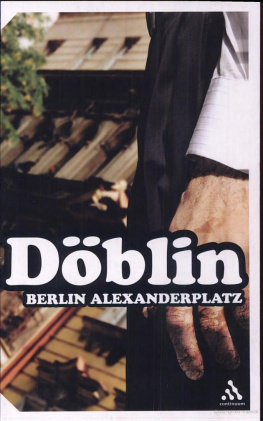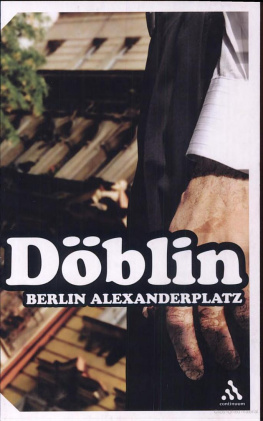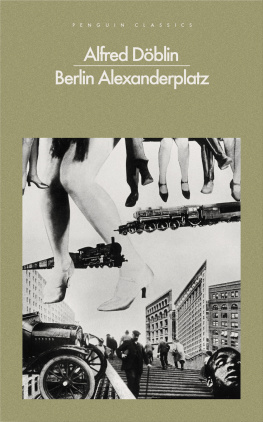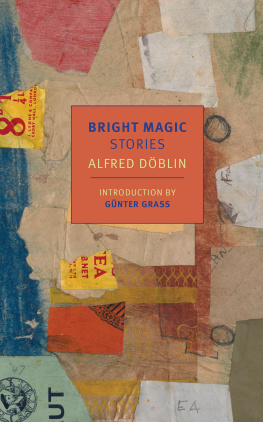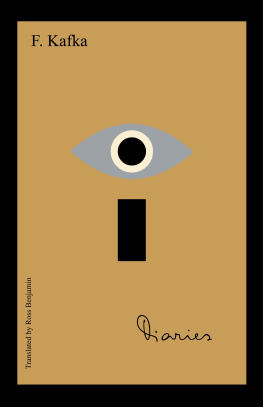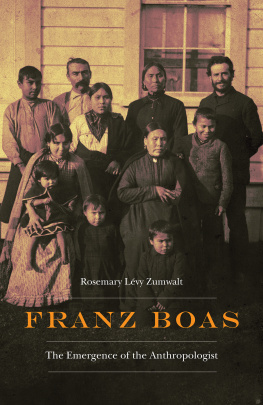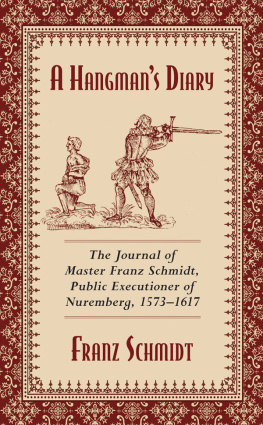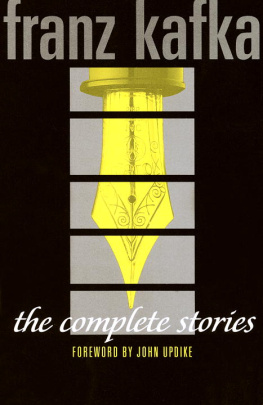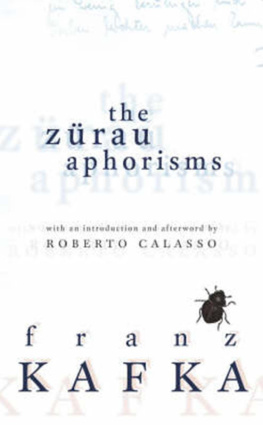Alfred Döblin - Berlin Alexanderplatz: The Story of Franz Biberkopf (Continuum Impacts)
Here you can read online Alfred Döblin - Berlin Alexanderplatz: The Story of Franz Biberkopf (Continuum Impacts) full text of the book (entire story) in english for free. Download pdf and epub, get meaning, cover and reviews about this ebook. year: 2005, publisher: Continuum, genre: Detective and thriller. Description of the work, (preface) as well as reviews are available. Best literature library LitArk.com created for fans of good reading and offers a wide selection of genres:
Romance novel
Science fiction
Adventure
Detective
Science
History
Home and family
Prose
Art
Politics
Computer
Non-fiction
Religion
Business
Children
Humor
Choose a favorite category and find really read worthwhile books. Enjoy immersion in the world of imagination, feel the emotions of the characters or learn something new for yourself, make an fascinating discovery.
- Book:Berlin Alexanderplatz: The Story of Franz Biberkopf (Continuum Impacts)
- Author:
- Publisher:Continuum
- Genre:
- Year:2005
- Rating:3 / 5
- Favourites:Add to favourites
- Your mark:
- 60
- 1
- 2
- 3
- 4
- 5
Berlin Alexanderplatz: The Story of Franz Biberkopf (Continuum Impacts): summary, description and annotation
We offer to read an annotation, description, summary or preface (depends on what the author of the book "Berlin Alexanderplatz: The Story of Franz Biberkopf (Continuum Impacts)" wrote himself). If you haven't found the necessary information about the book — write in the comments, we will try to find it.
Berlin Alexanderplatz: The Story of Franz Biberkopf (Continuum Impacts) — read online for free the complete book (whole text) full work
Below is the text of the book, divided by pages. System saving the place of the last page read, allows you to conveniently read the book "Berlin Alexanderplatz: The Story of Franz Biberkopf (Continuum Impacts)" online for free, without having to search again every time where you left off. Put a bookmark, and you can go to the page where you finished reading at any time.
Font size:
Interval:
Bookmark:
BERLIN ALEXANDERPLATZ
The Story of Franz Biberkopf
Alfred Dblin
Translated by Eugene Jolas
Foreword by Alexander Stephan
Continuum
The Tower Building 15 East 26tb Street II York Road Suite 1703 London SEI 7NX New York, NY 10010
www.continuumbooks.com
1961 by Walter Verlag AG, Olten
Translated from the original German Berlin Alexanderplatz. English edition formerly published under the title Alexanderplatz Berlin.
This edition 2004
All rights reserved. No part of this book may be reproduced, stored in a retrieval system, or transmitted, in any form or by any means, electronic, mechanical, photocopying, recording, or otherwise, without the written permission of The Continuum Publishing Company.
British Library Cataloguing-in-Publication Data A catalogue record for this book is available from the British Library
ISBN 0-8264-7789-5
Typeset by RefineCatch Limited, Bungay, Suffolk
Printed and bound in Great Britain by Antony Rowe, Chippenham, Wiltshire
Foreword
Berlin Alexanderplatz (1929) by Alfred Dblin (1878-1957) ranks among the masterpieces of modern literature. Like John Dos Passoss Manhattan Transfer, it explores the speed, anonymity, and chaos of the contemporary metropolis. From Upton Sinclair and The Jungle, it borrows the concern over social injustice in modern mass society. James Joyces Ulysses has been mentioned as a source for Dblins writing style, with its rapid shifts between interior monologue, collage of quotations, and montage of fragmented details. Filmmakers from Phil Jutzi (1931) to Rainer Werner Fassbinder (1980) have been attracted by its technique.
In the words of one of its first reviewers, Berlin Alexanderplatz is a book that gets under the skin. German Expressionism reached its zenith with Dblins masterpiece. The Americanization of the Weimar Republic and its culture is reflected in the hectic life at Alexanderplatz in the heart of Berlin, in the emergence of a new, socially and sexually independent woman, and in the at-once fascinating and threatening aspects of technology.
Dblin was a physician who lived and practiced in a working-class district of Berlin. He had firsthand experience with antiheros like Franz Biberkopf, who wheels and deals in an underworld of thieves and pimps, makes friends with bums, and is twice done in by a small-time gangster. Like his contemporary Benoit Brecht, Dblin uses running synopses of the plot to focus the readers attention on the process rather than the outcome of Franz Biberkopfs story. But unlike the Marxist Brecht, Dblin does not aim to change, by political means, the social injustice he sees around Alexanderplatz. Instead, the beginning and conclusion of the book deal with fate. Hell-fire blazes from peoples eyes in the periods of dreams and delusions experienced by Franzeken. The surface of reality is ruptured by symbolic, metaphysical and religious references to fundamental human situations. Animals and people are sacrificed to Death and the Whore of Babylon. The prison from which Biberkopf is released at the start of the story, the madhouse in which he vanishes suffering from psychic trauma near the ending, and the crazy world of Berlin between Alexanderplatz and Rosenthalerplatz, all blur into one. When Hitler came to power in Germany, Dblin fled first to France and then to the United States. Berlin Alexanderplatz, which very soon after publication had been translated into many languages, was banned by the Nazis. Virtually ignored following his return to Europe in 1945, Dblins books fortunately since have been rediscovered.
Alexander Stephan
Contents
Foreword by Alexander Stephan v
First Book 3
Second Book 30
Third Book 79
Fourth Book 92
Fifth Book 128
Sixth Book 173
Seventh Book 247
Eighth Book 293
Ninth Book 341
This book reports the story of Franz Biberkopf, an erstwhile cement-and transport-worker in Berlin. He has just been discharged from prison where he has been doing time because of former incidents, and is now back in Berlin, determined to lead a decent life.
And, at first, he succeeds. But then, though economically things go rather well with him, he gets involved in a regular combat with something that comes from the outside, with something unaccountable, that looks like fate.
Three times this thing crashes against our man, disturbing his scheme of life. It rushes at him with cheating and fraud. The man is able to scramble up again; he is still firm on his feet.
It drives and beats him with foul play. He finds it a bit hard to get up, they almost count him out.
Finally it torpedoes him with huge and monstrous savagery.
Thus our good man, who has held his own till the end, is laid low. He gives the game up for lost; he does not know how to go on and appears to be done for.
But, before he puts a definite end to himself, his eyes are forcibly opened in a way which I do not describe here. He is most distinctly given to understand how it all came about. To wit, through himself, thats obvious, through his scheme of life, which looked like nothing on earth, but now suddenly looks entirely different, not simple and almost self-evident, but prideful and impudent, cowardly withal, and full of weakness.
This awful thing which was his life acquires a meaning. Franz Biberkopf has been given a radical cure. At last we see our man back on Alexanderplatz, greatly changed and battered, but, nevertheless, bent straight again. To listen to this, and to meditate on it, will be of benefit to many who, like Franz Biberkopf, live in a human skin, and, like this Franz Biberkopf, ask more of life than a piece of bread and butter.
FIRST BOOK
Here in the beginning, Franz Biberkopf leaves Tegel Prison into which a former foolish life had led him. It is difficult to gain a foothold in Berlin again, but he finally does. This makes him happy, and now he vows to lead a decent life.
On Car 41 into Town
He stood in front of the Tegel Prison gate and was free now. Yesterday in convicts garb he had been raking potatoes with the others in the fields back of the building, now he was walking in a tan summer topcoat; they were still raking back there, he was free. He let one street-car after another go by, pressed his back against the red wall, and did not move. The gateman walked past him several times, showed him his car-line; he did not move. The terrible moment had come (terrible, Franze, why terrible?), the four years were over. The black iron gates, which he had been watching with growing disgust for a year (disgust, why disgust?), were shut behind him. They had let him out again. Inside, the others sat at their carpentry, varnishing, sorting, gluing, had still two years, five years to do. He was standing at the car-stop.
The punishment begins.
He shook himself and gulped. He stepped on his own foot. Then, with a run, took a seat in the car. Right among people. Go ahead. At first it was like being at the dentists, when he has grabbed a root with a pair of forceps, and pulls; the pain grows, your head threatens to burst. He turned his head back towards the red wall, but the car raced on with him along the tracks, and only his head was left in the direction of the prison. The car took a bend; trees and houses intervened. Busy streets emerged, Seestrasse, people got on and off. Something inside him screamed in terror: Look out, look out, its going to start now. The tip of his nose turned to ice; something was whirring over his cheek. Zwlf Uhr Mittagszeitung, B. Z., Berliner Illustrierte, Die Funkstunde. Anybody else got on? The coppers have blue uniforms now. He got off the car, without being noticed, and was back among people again. What happened? Nothing. Chest out, you starved sucker, you, pull yourself together, or Ill give you a crack in the jaw! Crowds, what a swarm of people! How they hustle and bustle! My brain needs oiling, its probably dried up. What was all this? Shoe stores, hat stores, incandescent lamps, saloons. People got to have shoes to run around so much; didnt we have a cobblers shop out there, lets bear that in mind! Hundreds of polished Window-panes, let em blaze away, are they going to make you afraid or something, Why, you can smash em up, cant you, whats the matter with em, theyre polished clean, thats all. The pavement on Rosenthaler Platz was being torn up; he walked on the wooden planks along with the others. Just go ahead and mix in with people, then everythings going to clear up, and you wont notice anything, you fool. Wax figures stood in the show-windows, in suits, overcoats, with skins, with shoes and stockings. Outside everything was moving, but-back of it-there was nothing! It-did not-live! It had happy faces, it laughed, waited in twos and threes on the traffic islands opposite Aschingers, smoked cigarettes, turned the pages of newspapers. Thus it stood there like the street-lamps-and-became more and more rigid. They belonged with the houses, everything white, everything wooden.
Next pageFont size:
Interval:
Bookmark:
Similar books «Berlin Alexanderplatz: The Story of Franz Biberkopf (Continuum Impacts)»
Look at similar books to Berlin Alexanderplatz: The Story of Franz Biberkopf (Continuum Impacts). We have selected literature similar in name and meaning in the hope of providing readers with more options to find new, interesting, not yet read works.
Discussion, reviews of the book Berlin Alexanderplatz: The Story of Franz Biberkopf (Continuum Impacts) and just readers' own opinions. Leave your comments, write what you think about the work, its meaning or the main characters. Specify what exactly you liked and what you didn't like, and why you think so.

